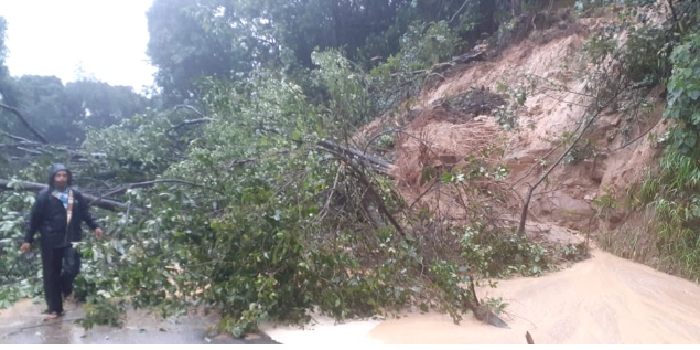Bengaluru, Jan 5: A day after senior Congress leaders in Karnataka met to build consensus for the way ahead, the race for the post of KPCC President hotted up on Sunday with aspirants and their supporters stepping up efforts to secure the coveted posts.
Senior leader D K Shivakumar, seen as a frontrunner for the post, met former Chief Minister Siddaramaiah at his residence amid reports that he was lobbying in favour of one of his confidants.
Meanwhile, another senior party legislator Satish Jarkiholi made it clear he was capable of discharging the responsibility if the high command asked him to do so.
Also, loyalists of senior leader and former Minister Ramalinga Reddy came up with social media posts, pushing forward his name for KPCC President.
Congress Legislature Party leader Siddaramaiah and state Congress chief Dinesh Gundu Rao quit their posts after the party fared poorly, winning only two of the 15 seats in the bypolls while it had held 12 of them.
According to party sources, though Siddaramaiah is likely to retain the position of Leader of Opposition, the CLP leader post may be given to some one else.
The sources also said replacement of KPCC President was most likely as Dinesh Gundu Rao's resignation could be accepted.
Shivakumar is seen as the frontrunner for the KPCC President post and has already held discussions with high command in this regard.
His meeting with Siddaramaiah, who is expected to travel to Delhi soon to hold discussions with the high command, assumes significance amid reports that the former chief minister was favouring one of his confidants for the post.
Shivakumar during the meeting sought Siddaramaiah's cooperation for his appointment to the coveted post, with a promise to work under his leadership, sources said.
However, speaking to reporters after the meeting, Shivakumar said he had worked under Siddaramaiah as legislator and Minister, and there was nothing special about the nearly two-hour-long meeting.
"...Im not a competitor for any post, I won't ask for any post, that time is over. I'm a karyakarta of the party and will work as karyakarta," he said in response to a question, adding he will abide by the party's decision.
On the other hand, Congressleader andYamakanamaradi MLASatish Jarkiholi said he was ready to take up the responsibility if the party high command decides so.
"It has been decided to cooperate and work under the leadership of anyone, whom the party high command decides (as President). Let's see, it is for the high command to decide (who will be KPCC President)," he said.
In response to a question from reporters in Belagavi if he was aspiring for the post, Jarikholi said, "I havent asked, but if given I will manage it efficiently..."
Meanwhile, loyalist of seven-time Congress MLA Ramalinga Reddy, came up with a social media post, demanding KPCC President post for the leader.
"Seven-time @INCKarnataka MLA and former Home Minister Sri @RLR_BTM for #KPCC President. #Congress #Karnataka #RamalingaReddy #BTMLayout #BBMP #Bengaluru," former Mayor of Bengaluru City and a close confidant of Reddy, B N Manjunatha Reddy tweeted.
Last year during the political turmoil faced by the coalition government, Ramalinga Reddy had threatened to resign, unhappy at being sidelined in the party.
He had later decided to stay with the Congress after the high command intervened.
With a virtual vacuum in the state Congress following the resignation of its top leadership after the rout in the recent Assembly bypolls, senior party leaders had met here on Saturday with an aim to build a consensus for the way ahead.
According to sources, the meeting was convened after instructions from the high command to iron out differences and build consensus on taking the party forward and regarding appointments to key posts, before coming to Delhi for discussions.
Senior leader K H Muniyappa and KPCC Working President Eshwar Khandreare seen as the other aspirants for the President post.
Ssenior leaders G Parameshwara along with H K Patil are among those seen as the frontrunners for the CLP leader post vacated by Siddaramaiah.








Comments
Chaddi galige mattu shobakkage barnal bhagya. Jai PFI
Madam Shobakka
can you plzz concentrate most important role? Just go around the slum area and adopt 100-200 children, feed them or do some good deeds rather wasting time on Muslims.
People are not that FOOLISH to believe what U say.
If you want to enjoy the taste of south kanara brother hood, please remove your rss glass . and stop supporting communal force.
Add new comment